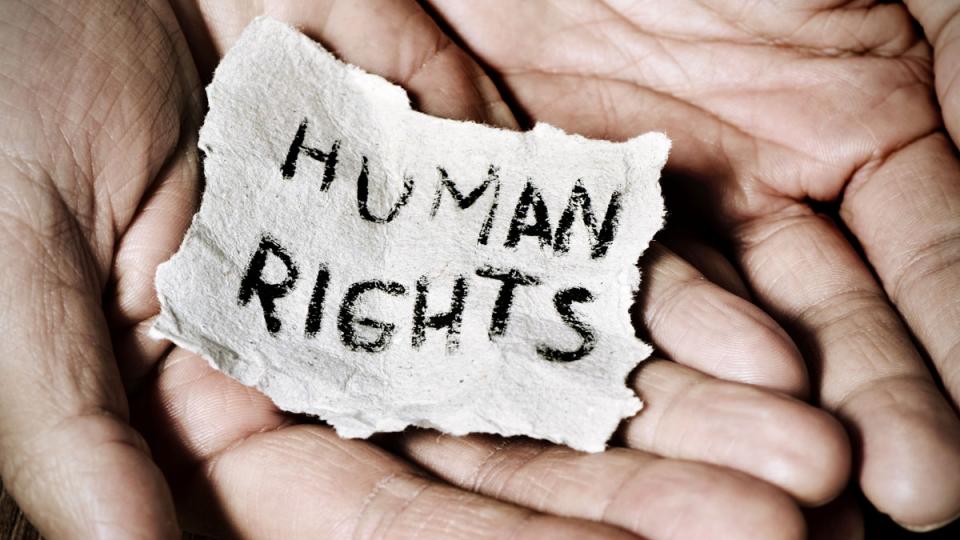Human rights

Terrorism poses a serious threat, not only to international peace and security, but also to the enjoyment of human rights and social and economic development. Member States must take steps to effectively counter and prevent terrorism as part of their obligation under international human rights law to protect the rights to life and personal security.
Beginning with its adoption of resolution 1456 (2003) the Security Council has also consistently and repeatedly affirmed that States must ensure that any measures taken to counter terrorism comply with all their obligations under international law, in particular international human rights law, international refugee law, and international humanitarian law. More recently, the Council has underscored that effective counter-terrorism measures and respect for human rights, fundamental freedoms, and the rule of law are complementary and mutually reinforcing and constitute an essential part of successful counter-terrorism efforts. In its resolution 2178 (2014), the Council stated that failure to comply with these and other international obligations, including under the Charter of the United Nations, fosters a sense of impunity and is one of the factors contributing to increased radicalization.
In 2004, with the establishment of its Executive Directorate (CTED), the Counter-Terrorism Committee began moving towards a more proactive policy on human rights. CTED was mandated to liaise with the Office of the United Nations High Commissioner for Human Rights (OHCHR) and other human rights organizations in matters relating to counter-terrorism (S/2004/124), and human rights experts were appointed to its staff. In the Counter-Terrorism Committee’s reports to the Security Council, submitted as part of its comprehensive reviews of the work of CTED, the Committee has consistently stated that CTED should take account of relevant human rights obligations (S/2005/800 and S/2006/989). In May 2006, the Committee adopted human rights policy guidance for CTED. The Committee and CTED now routinely take account of relevant human rights and rule of law issues in all their activities, including country visits, thematic meetings, technical assistance recommendations, and other interactions with Member States.
The Security Council, in its resolution 1624 (2005), addresses incitement to commit terrorist acts and stresses that States must ensure that any measures they take to implement the resolution comply with all their obligations under international law, including international human rights law. In the preamble, the relevance of the right to freedom of expression to counter-incitement measures is highlighted, among others.
In its resolution 2617 (2021), renewing the mandate of CTED, the Council reminds States that effective measures to counter terrorism and violent extremism as and when conducive to terrorism, and respect for human rights are complementary and mutually reinforcing and essential to success. The Council notes the importance of respect for the rule of law in effectively combating terrorism; welcomes the role, in this regard, of relevant of civil society, academia, think tanks, and the private sector, especially women-,youth-, and locally focused actors; and encourages CTED to further develop its activities to ensure that all human rights and rule of law issues relevant to the implementation of resolutions 1373 (2001), 1624 (2005), 2178 (2014), and other relevant resolutions, are addressed as an important component of CTED’s country visits, assessments, analysis of emerging issues, trends, and developments, and facilitation of technical assistance.
In its global surveys of the implementation by Member States of Council resolutions 1373 (2001) and 1624 (2005), CTED drew attention to a range of human rights issues relevant to the implementation of these resolutions. They include, for example, the question of vague or overbroad national definitions of terrorist acts; compliance with international standards of due process and fair treatment for terrorism suspects; the impact of counter-financing of terrorism measures on the rights to freedom of association, conscience and belief; respect for the right to freedom of expression in counter-incitement measures; respect for the rights of individuals in civil society and prevention of misuse of counter-terrorism measures; prevention of discrimination; the need for independent oversight mechanisms; and the rights of refugees.
Since its inception, the Counter-Terrorism Committee has been regularly briefed by the High Commissioner for Human Rights and other senior OHCHR officials, as well as by the Special Rapporteur on the promotion and protection of human rights while countering terrorism. CTED regularly liaises with OHCHR, including as a member of the United Nations Global Counter-Terrorism Coordination Compact Working Group on Promoting and Protecting Human Rights and the Rule of Law while Countering Terrorism and Supporting Victims of Terrorism.

